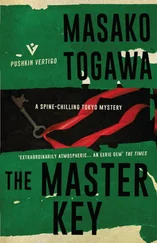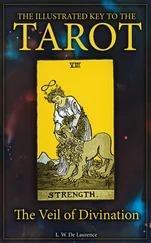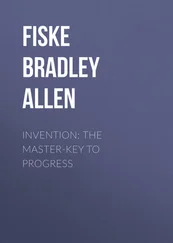Charles F. Haanel - The Master Key System
Здесь есть возможность читать онлайн «Charles F. Haanel - The Master Key System» — ознакомительный отрывок электронной книги совершенно бесплатно, а после прочтения отрывка купить полную версию. В некоторых случаях можно слушать аудио, скачать через торрент в формате fb2 и присутствует краткое содержание. Жанр: unrecognised, на английском языке. Описание произведения, (предисловие) а так же отзывы посетителей доступны на портале библиотеки ЛибКат.
- Название:The Master Key System
- Автор:
- Жанр:
- Год:неизвестен
- ISBN:нет данных
- Рейтинг книги:4 / 5. Голосов: 1
-
Избранное:Добавить в избранное
- Отзывы:
-
Ваша оценка:
- 80
- 1
- 2
- 3
- 4
- 5
The Master Key System: краткое содержание, описание и аннотация
Предлагаем к чтению аннотацию, описание, краткое содержание или предисловие (зависит от того, что написал сам автор книги «The Master Key System»). Если вы не нашли необходимую информацию о книге — напишите в комментариях, мы постараемся отыскать её.
The Master Key System — читать онлайн ознакомительный отрывок
Ниже представлен текст книги, разбитый по страницам. Система сохранения места последней прочитанной страницы, позволяет с удобством читать онлайн бесплатно книгу «The Master Key System», без необходимости каждый раз заново искать на чём Вы остановились. Поставьте закладку, и сможете в любой момент перейти на страницу, на которой закончили чтение.
Интервал:
Закладка:
Part Two explains the method by which this is accomplished.
1. The operations of the mind are produced by two parallel modes of activity, the one conscious, and the other subconscious. Prof. Davidson says: "He who thinks to illuminate the whole range of mental action by the light of his own consciousness is not unlike one who should go about to illuminate the universe with a rushlight."
2. The subconscious, logical processes are carried on with a certainty and regularity which would be impossible if there existed the possibility of error. Our mind is so designed that it prepares for us the most important foundations of cognition, whilst we have not the slightest apprehension of the modus operandi.
3. The subconscious soul, like a benevolent stranger, works and makes provision for our benefit, pouring only the mature fruit into our lap; thus ultimate analysis of thought processes shows that the subconscious is the theatre of the most important mental phenomena.
4. It is through the subconscious that Shakespeare must have perceived, without effort, great truths which are hidden from the conscious mind of the student; that Phidias fashioned marble and bronze; that Raphael painted Madonnas and Beethoven composed symphonies.
5. Ease and perfection depend entirely upon the degree in which we cease to depend upon the consciousness; playing the piano, skating, operating the typewriter, the skilled trades, depend for their perfect execution on the process of the subconscious mind. The marvel of playing a brilliant piece on the piano, while at the same time conducting a vigorous conversation, shows the greatness of our subconscious powers.
6. We are all aware how dependent we are upon the subconscious, and the greater, the nobler, the more brilliant our thoughts are, the more it is obvious to ourselves that the origin lies beyond our ken. We find ourselves endowed with tact, instinct, sense of the beautiful in art, music, etc., of whose origin or dwelling-place we are wholly unconscious.
7. The value of the subconscious is enormous; it inspires us; it warns us; it furnishes us with names, facts and scenes from the storehouse of memory. It directs our thoughts, tastes, and accomplishes tasks so intricate that no conscious mind, even if it had the power, has the capacity for.
8. We can walk at will; we can raise the arm whenever we choose to do so; we can give our attention through eye or ear to any subject at pleasure. On the other hand, we cannot stop our heartbeats nor the circulation of the blood, nor the growth of stature, nor the formation of nerve and muscle tissue, nor the building of the bones, nor many other important vital processes.
9. If we compare these two sets of action, the one decreed by the will of the moment, and the other proceeding in majestic, rhythmic course, subject to no vacillation, but constant at every moment, we stand in awe of the latter, and ask to have the mystery explained. We see at once that these are the vital processes of our physical life, and we cannot avoid the inference that these all-important functions are designedly withdrawn from the domain of our outward will with its variations and transitions, and placed under the direction of a permanent and dependable power within us.
10. Of these two powers, the outward and changeable has been termed the "Conscious Mind," or the "Objective Mind" (dealing with outward objects) . The interior power is called the "Subconscious Mind," or the "Subjective Mind," and besides its work on the mental plane it controls the regular functions which make physical life possible.
11. It is necessary to have a clear understanding of their respective functions on the mental plane, as well as of certain other basic principles. Perceiving and operating through the five physical senses, the conscious mind deals with the impressions and objects of the outward life.
12. It has the faculty of discrimination, carrying with it the responsibility of choice. It has the power of reasoning whether inductive, deductive, analytical or syllogistic, and this power may be developed to a high degree. It is the seat of the will, with all the energies that flow therefrom.
13. Not only can it impress other minds, but it can direct the subconscious mind. In this way the conscious mind becomes the responsible ruler and guardian of the subconscious mind. It is this high function which can completely reverse conditions in your life.
14. It is often true that conditions of fear, worry, poverty, disease, inharmony and evils of all kinds dominate us by reason of false suggestions accepted by the unguarded subconscious mind. All this the trained conscious mind can entirely prevent by its vigilant protective action. It may properly be called "the watchman at the gate" of the great subconscious domain.
15. One writer has expressed the chief distinction between the two phases of mind thus:
"Conscious mind is reasoning will. Subconscious mind is instinctive desire, the result of past reasoning will."
16. The subconscious mind draws just and accurate inferences from premises furnished from outside sources. Where the premise is true, the subconscious mind reaches a faultless conclusion, but where the premise or suggestion is an error the whole structure falls. The subconscious mind does not engage in the process of proving. It relies upon the conscious mind, "the watchman at the gate," to guard it from mistaken impressions.
17. Receiving any suggestions as true, the subconscious mind at once proceeds to act thereon in the whole domain of its tremendous field of work. The conscious mind can suggest either truth or error. If the latter, it is at the cost of wide-reaching peril to the whole being.
18. The conscious mind ought to be on duty during every waking hour. When the "watchman" is "off guard," or when its calm judgment is suspended, under a variety of circumstances, then the subconscious mind is unguarded and left open to suggestion from all sources. During the wild excitement of panic, or during the height of anger, or the impulses of the irresponsible mob, or at any other time of unrestrained passion, the conditions are most dangerous. The subconscious mind is then open to the suggestion of fear, hatred, selfishness, greed, self-depreciation and other negative forces, derived from surrounding persons or circumstances. The result is usually unwholesome in the extreme, with effects that may endure to distress it for a long time. Hence the great importance of guarding the subconscious mind from false impressions.
19. The subconscious mind perceives by intuition. Hence its processes are rapid. It does not wait for the slow methods of conscious reasoning. In fact, it cannot employ them.
20. The subconscious mind never sleeps, never rests, any more than does your heart, or your blood. It has been found that by plainly stating to the subconscious mind certain specific things to be accomplished, forces are set in operation that lead to the result desired. Here, then, is a source of power which places us in touch with Omnipotence. Herein is a deep principle which is well worth our most earnest study.
21. The operation of this law is interesting. Those who put it into operation find that when they go out to meet the person with whom they anticipate a difficult interview, to! something has been there before them and dissolved the supposed differences; everything is changed; all is harmonious; they find that when some difficult business problem presents itself they can afford to make delay and something suggests the proper solution; everything is properly arranged; in fact, those who have learned to trust the subconscious find that they have infinite resources at their command.
22. The subconscious mind is the seat of our principles and our aspirations. It is the fount of our artistic and altruistic ideals. These instincts can only be overthrown by an elaborate and gradual process of undermining the innate principles.
Читать дальшеИнтервал:
Закладка:
Похожие книги на «The Master Key System»
Представляем Вашему вниманию похожие книги на «The Master Key System» списком для выбора. Мы отобрали схожую по названию и смыслу литературу в надежде предоставить читателям больше вариантов отыскать новые, интересные, ещё непрочитанные произведения.
Обсуждение, отзывы о книге «The Master Key System» и просто собственные мнения читателей. Оставьте ваши комментарии, напишите, что Вы думаете о произведении, его смысле или главных героях. Укажите что конкретно понравилось, а что нет, и почему Вы так считаете.












